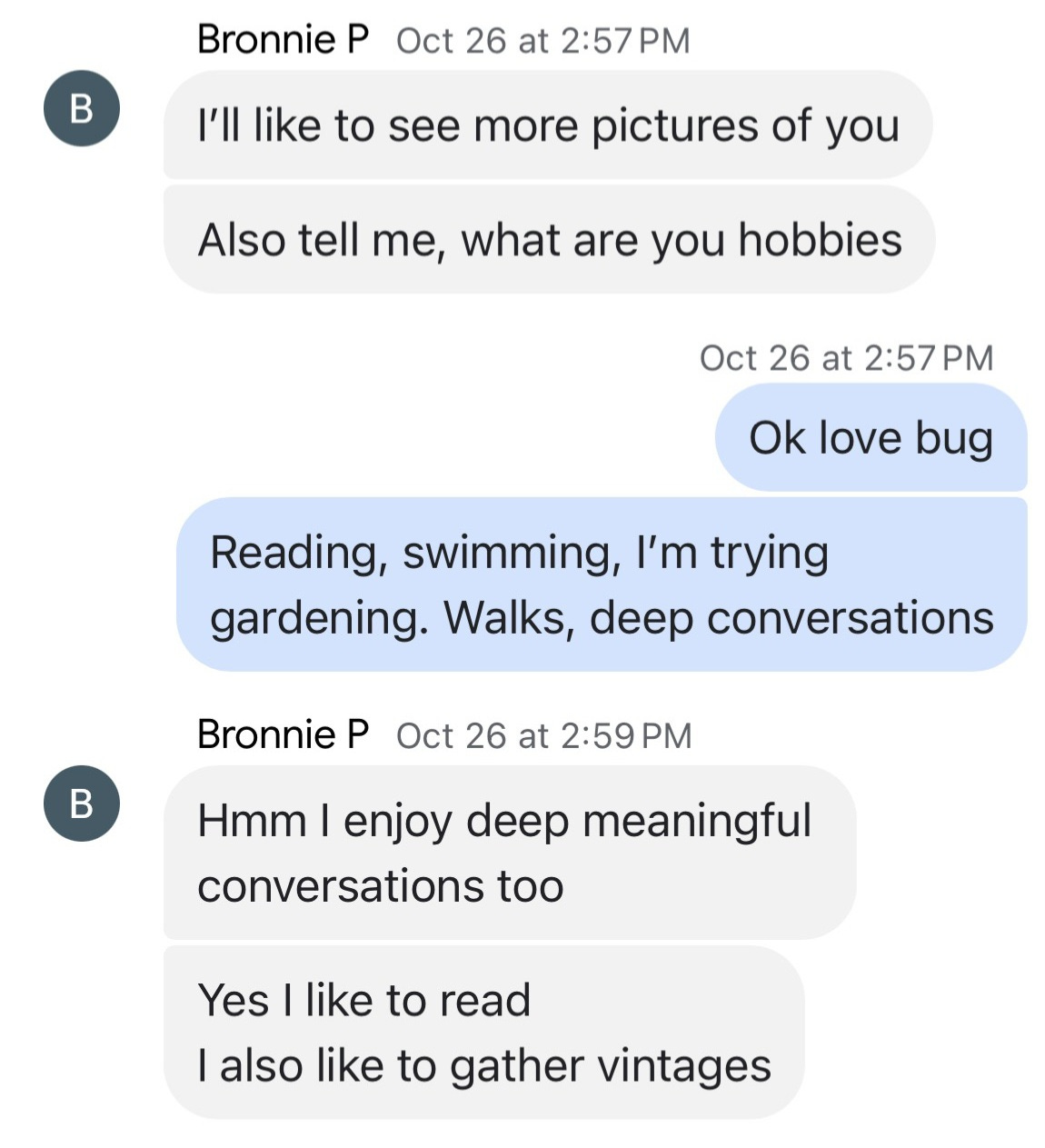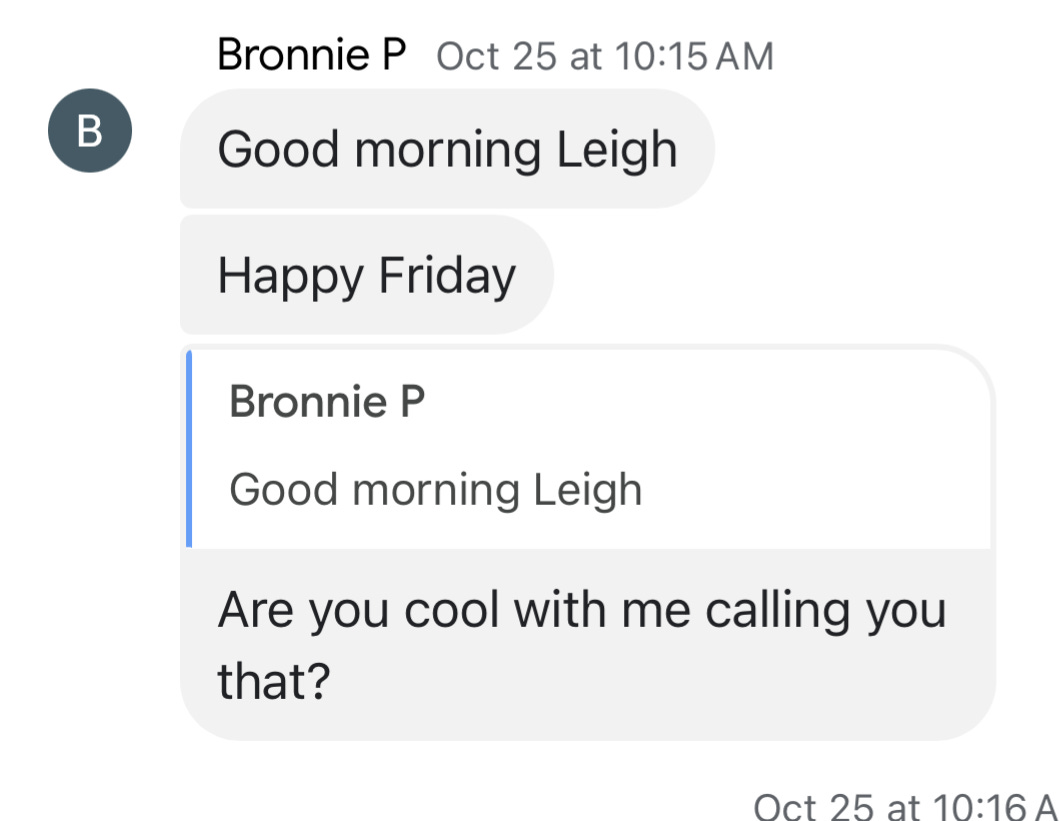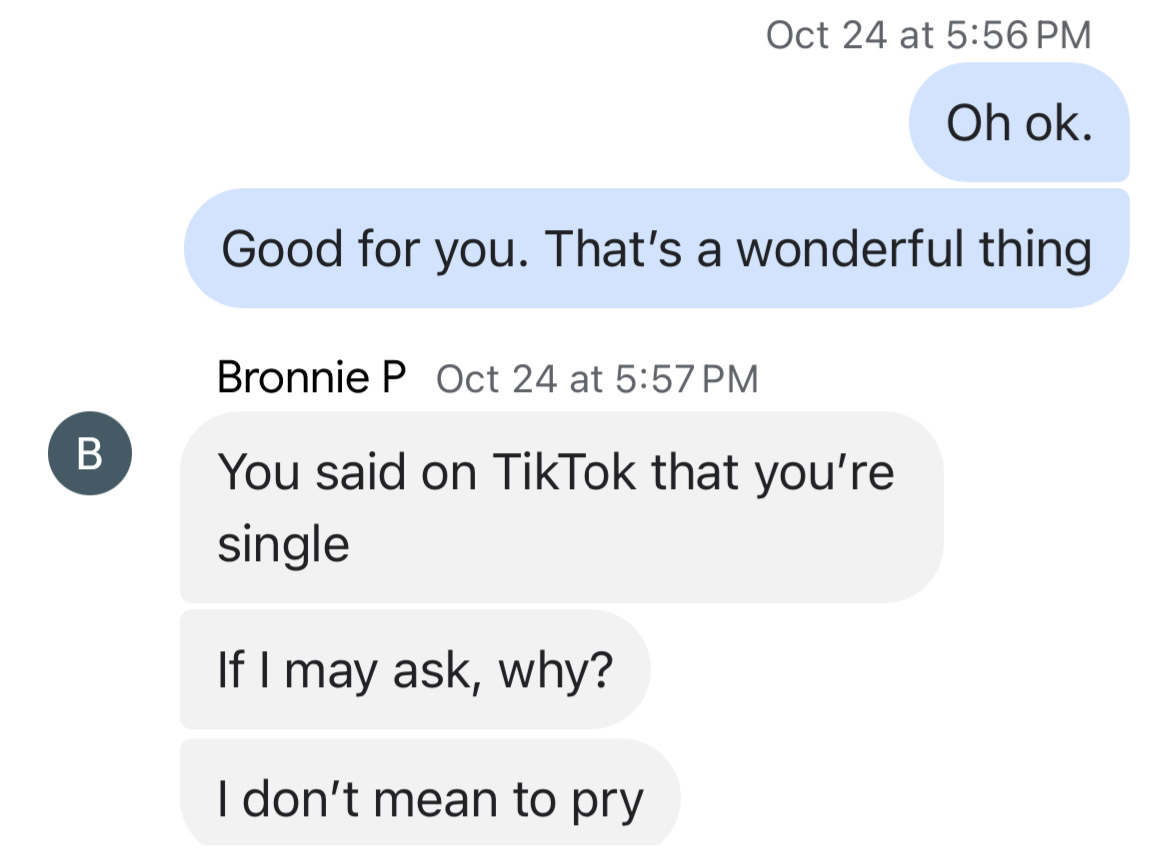Beware This Tiktok Scam Targeting Single Women
She thought she'd found her person. Turns out, everything he told her was a lie.
Join our community as a paid subscriber for access to weekly members-only podcast episodes, advice posts, and other bonus content.
On this week’s podcast, we’re interviewing G., a listener scammed by someone on TikTok pretending to be actor Bronson Pinchot.
Many assume these scammers are sitting overseas in a dark, dingy bedroom. This myth needs to be clarified. Most scammers do not work solo. They belong to a network of people trained to deceive. They sit in cubicles alongside other scammers in make-shift call centers following scripts created to exploit people’s loneliness and vulnerability. Romance scamming is an industry that generated over one billion dollars in stolen revenue in 2023.
What makes these frauds so dangerous is that they know how to manipulate their victims psychologically. G. was kind (and brave) enough to forward all her messages with Fake Bronson Pinchot to me. Something important to understand is that G. is an educated woman with multiple degrees. I say this to drive home the point that this deception can take anybody in. Scammers do not discriminate. They are professional hunters, skulking around social media and dating apps, looking for their next target.
And they do look. They go through the profile of a potential mark, looking for date points they can exploit. There’s a process. With G.’s permission, I will provide examples using her messages with “Bronnie.”
Initiate contact
After they’ve taken time to review someone’s profile, they follow or message them.
Build rapport
This is typically done by asking questions to establish their target’s likes and dislikes. That way, the scammer can say they share their target’s hobbies and opinions. Notice how G. says she enjoys meaningful conversations, and “Bronson” says he also does.
Create intimacy
This is the phase when they divulge more personal information about themselves. Scammers do this so their victims will think they’re special in some regard. That will allow the scammer to ask more probing questions. In one message, “Bronson” asked G. for her middle name. He then addressed her by that name, similar to referring to your significant other by a pet name only you and they know about.
Questions like what it is like to live alone and why she’s unmarried are asked to gauge a couple of things.
Does G. have a support system? This is to determine if G. has anyone nearby who might talk her out of sending money.
Does she feel ashamed of her single status? If she does, she may be more willing to believe what Bronnie says and do whatever it takes to keep him interested.
Romance scammers employ psychological manipulation tactics to exploit their victims emotionally and financially. Here are the ones used most often:
Love Bombing
Scammers overwhelm victims with excessive affection, attention, and flattery to create a false sense of intimacy and make the target dependent on their attention.
Mirroring
They mimic the victim’s interests, values, and dreams to create the illusion of deep compatibility. We saw that when Bronnie asked G. about her hobbies, he expressed interest in the same things.
Playing the Victim
They share tragic or sob stories (e.g., being widowed or having a sick child) to evoke sympathy and make victims feel obligated to help.
Isolation
Scammers discourage victims from discussing their relationships with others, often claiming that people won’t understand or might be jealous.
Future Faking
They make grand promises about a future together (e.g., marriage, moving in together) to keep victims emotionally invested. Bronnie promised G. a romantic weekend away. She sent money intended for his flight and hotel room.
Gaslighting
When victims question inconsistencies, scammers manipulate them into doubting their perceptions, often accusing them of mistrust or paranoia.
Reinforcement with Small Rewards
Occasionally, scammers "reward" victims with small gestures of affection or gifts to keep them hooked and justify continued investment. Bronnie sent G. an endearing voice note that was a Cameo Bronson Pinchot had made for a fan.
These tactics work because they manipulate emotions like love, guilt, fear, and hope, making it difficult for victims to see the deception until it's too late.
Make sure to subscribe so you can hear the full interview.









https://open.substack.com/pub/billionairbear/p/dating-the-yesmaybeno-grid?r=1g5bw0&utm_medium=ios